


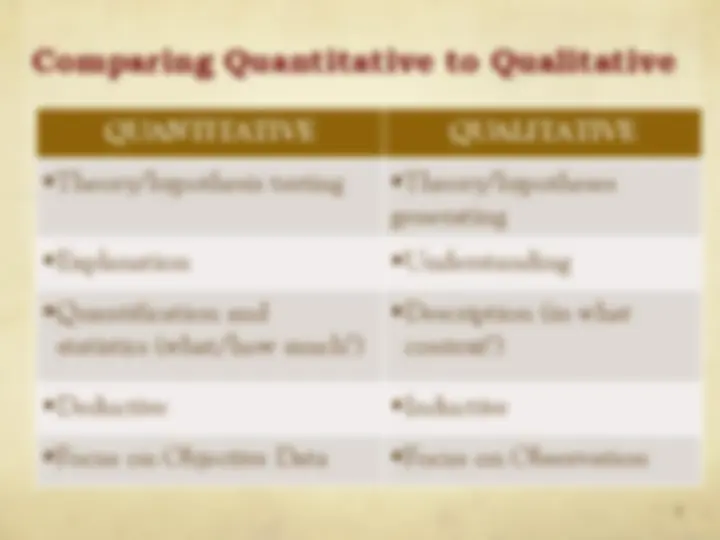

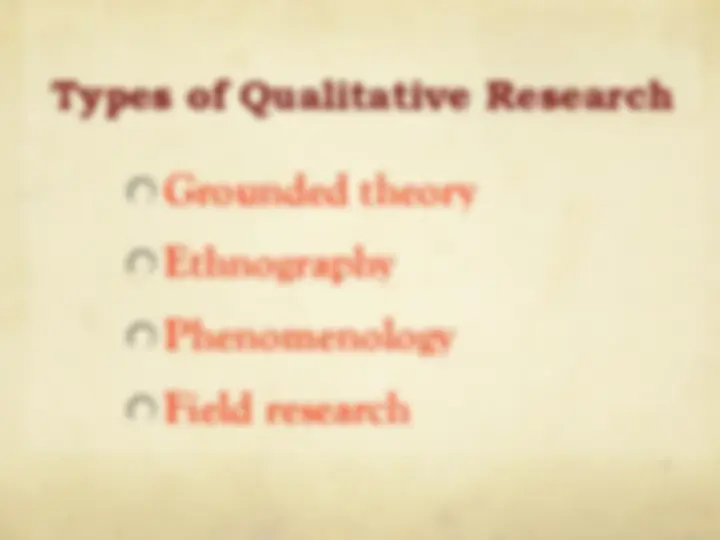
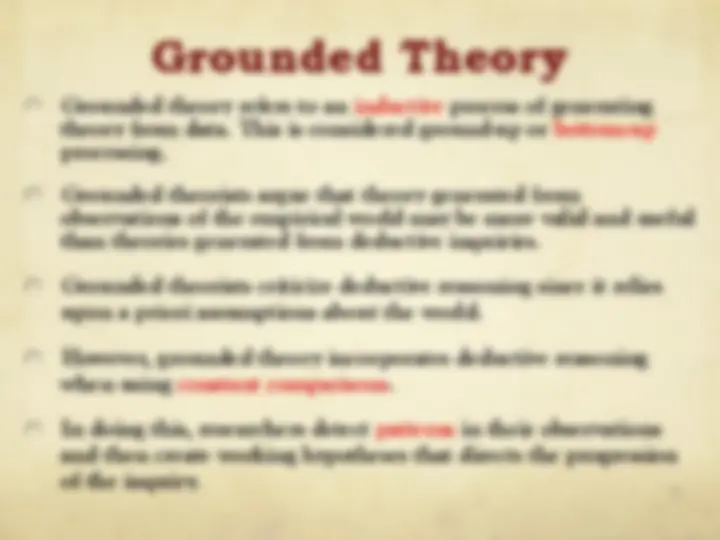
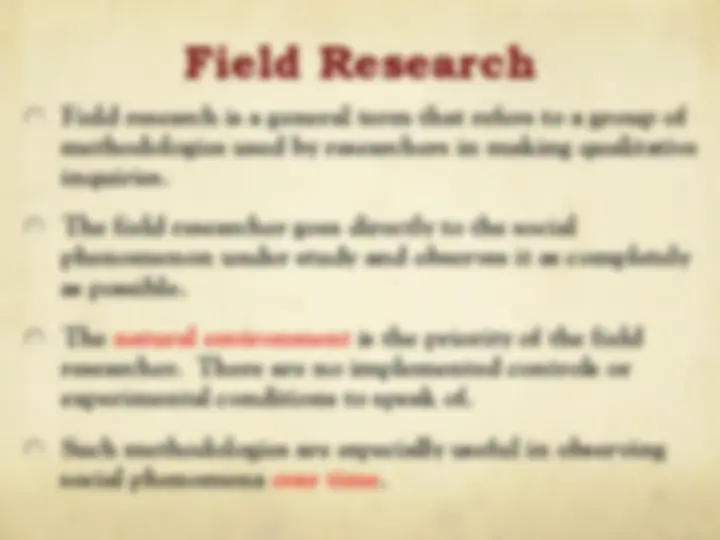
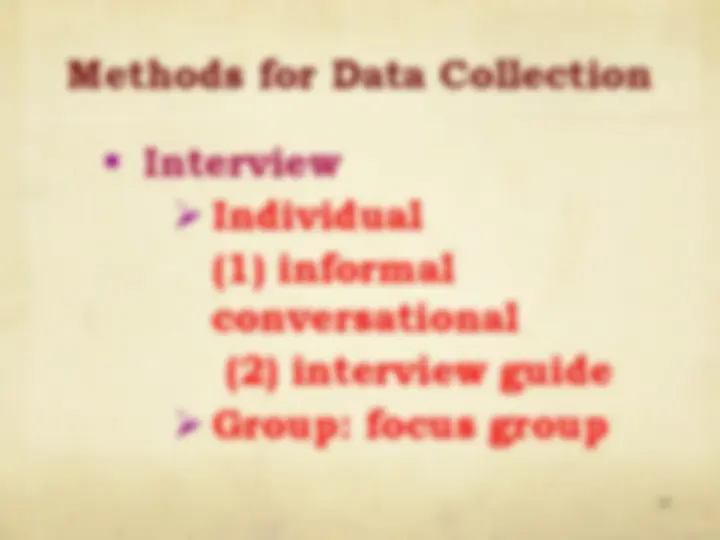



Study with the several resources on Docsity

Earn points by helping other students or get them with a premium plan


Prepare for your exams
Study with the several resources on Docsity

Earn points to download
Earn points by helping other students or get them with a premium plan
Community
Ask the community for help and clear up your study doubts
Discover the best universities in your country according to Docsity users
Free resources
Download our free guides on studying techniques, anxiety management strategies, and thesis advice from Docsity tutors
An introduction to qualitative research, its differences with quantitative research, and the various types of qualitative research including grounded theory, ethnography, phenomenology, and field research. It also covers data collection methods such as interviews and observational techniques.
Typology: Lecture notes
1 / 16

This page cannot be seen from the preview
Don't miss anything!










1
2
Qualitative Research is Sometimes called “ Naturalistic Inquiry ” Meaning that the researcher just reports on what’s there – and does not try to manipulate or intervene in any way. Sometimes naturalistic inquiry is compared to newspaper reporting.
Comparing Quantitative to Qualitative QUANTITATIVE QUALITATIVE §Theory/hypothesis testing §Theory/hypotheses generating §Explanation §Understanding §Quantification and statistics (what/how much?) §Description (in what context?) §Deductive §Inductive §Focus on Objective Data §Focus on Observation 5
7
Answer research questions rather than test a hypothesis. Seldom look at the effectiveness of an intervention. Examine the perceptions, actions, and feelings of participants. Obtained detailed information from interviews, content analysis, or observations. 8
Grounded Theory " Grounded theory refers to an inductive process of generating theory from data. This is considered ground-up or bottom-up processing. " Grounded theorists argue that theory generated from observations of the empirical world may be more valid and useful than theories generated from deductive inquiries. " Grounded theorists criticize deductive reasoning since it relies upon a priori assumptions about the world. " However, grounded theory incorporates deductive reasoning when using constant comparisons. " In doing this, researchers detect patterns in their observations and then create working hypotheses that directs the progression of the inquiry.
Ethnography
Field Research " Field research is a general term that refers to a group of methodologies used by researchers in making qualitative inquiries. " The field researcher goes directly to the social phenomenon under study and observes it as completely as possible. " The natural environment is the priority of the field researcher. There are no implemented controls or experimental conditions to speak of. " Such methodologies are especially useful in observing social phenomena over time.
14
A View for Qualitative Analysis